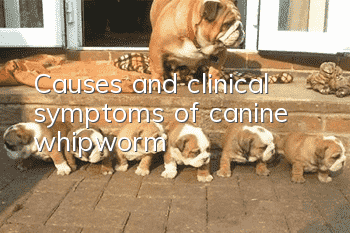Can pets eat salt?

"Cats can't eat salt, they will suffer from kidney failure! Dogs can't eat salt, they will lose their hair!"
Many parents must have heard a lot of claims that salt is harmful to the health of pets, and they are even more afraid of "salt" when raising pets.
Salt is really "unlucky". He will always be in trouble in front of cats and dogs...Actually, this is completely wrong!
It’s time to clear Yanba’s name!
It’s not that cats and dogs cannot eat salt, but they must eat salt, but this must be controlled within reasonable standards.
Cats and dogs are both mammals. Salt is a mineral among the six major nutrients and plays a very important role in maintaining normal physiological functions of mammals.
Human beings have pores all over their body, and they mainly sweat and dissipate heat through the pores all over the body. Sweat contains a lot of salt, so people must supplement a lot of salt to meet the needs of the body.
Cats and dogs that are covered in fur can only dissipate heat through the sweat glands on the pads of their paws and through breathing. Their perspiration ability is far less powerful than that of humans, so the salt content required by cats and dogs is much lower than that of humans.
The U.S. feed nutrition standards recommend that in dry dog food that usually contains 10% moisture, the salt requirement should be more than 1%. A 25-kg Satsuma needs to consume at least 500 mg of salt every day.
Cats also have very little demand for salt. An adult cat only needs about 110 mg of salt per kilogram of body weight per day.
How to eat "salt"?
It is not recommended to feed all kinds of foods that we humans often eat, such as meals, sausages, grilled chicken wings, etc., to cats and dogs. Because the salt content of these foods is completely excessive for them, and they do not meet the nutritional needs of cats and dogs, and may also cause poisoning by accidental ingestion.
Professional pet foods such as cat food, dog food, various canned snacks, etc. will add salt that meets the needs of pets, and the required nutrients have been properly matched.
Many cooks also like to make home-made food, mostly using meat and offal. Meat and offal already contain a certain amount of salt, so there is no need to add additional salt during cooking. However, you must do enough homework on homemade food to avoid incomplete nutrition. Otherwise, it is not recommended to eat home-made food for a long time.
Will you get sick if you don’t eat enough salt?
We often say that excessive salt intake in furry children can easily lead to various diseases, but if there is a lack of salt, it is also detrimental to health. Once there is a lack of salt intake, furry children will be prone to fatigue and may easily cause growth stagnation, dry skin, hair loss and other health problems.
So, cat mothers and dog parents, as long as you arrange your diet reasonably and correctly, you really don’t have to be too nervous about the salt intake of your furry children~
- Four kinds of fruits that cannot be eaten by French Dou
- Border Collie training tips, a must-read for border collies!
- What’s wrong with a dog’s ears that are swollen and thick?
- How to regulate food accumulation in dogs? Regulate the gastrointestinal tract of dogs!
- Why are newly arrived dogs prone to getting sick?
- Will Shiba Inu poop where he sleeps? Shiba Inu toilet training!
- How to trim Scottish Sheepdog nails
- Several common causes of vomiting in Samoyed dogs
- What are the symptoms of a cold in a Samoyed? What medicine is good for a Samoyed to take for a cold?
- What should I do if my Alaskan Malamute eats too much and has diarrhea?



